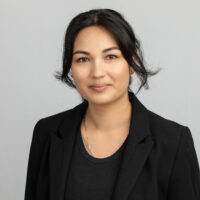Australia is world-leading in the deployment of distributed energy resources and we have an ideal opportunity to test new approaches to unleash the resources we already have in place to improve energy affordability, security, and efficiency.
Distributed energy resources (DER) can deliver long term value in the form of energy system reliability and flexibility with less risk.
DER is generally the cheapest form of all energy sources and can lower energy expenses by up to 45%.
Australia is world-leading in the deployment of distributed energy resources and we have an ideal opportunity to test new approaches to unleash the resources we already have in place to improve energy affordability, security, and efficiency.
Procuring energy from local organisations means investing in local businesses, people and community goals
Strategic community electrification can defer grid upgrades, enhance investment, and improve performance and resilience of the distribution channel
Procuring energy locally reduces curtailment, congestion, marginal loss factors and market change risks. UREZ collaborates with partners to deliver flexible load management and tariffs.
For Australia to meet and beat its emissions reduction targets, rapid upscaling of renewable energy will need to come online.
However, building and integrating large-scale renewable energy facilities are multiyear projects that require massive investment, regulatory controls, and infrastructure changes to support.
At the same time, Australia is a world leader in deployment of distributed energy resources (DERs). DERs are renewable energy units or systems located onsite at houses or commercial businesses to supply them with clean power. Examples of DER include rooftop solar PV units, electric vehicles and charges, battery storage, thermal energy storage and energy management technologies.
However, Australian owners of DER are unable to capture the full value of their investment, as our energy system is not set up to support unused renewable energy flowing back into the grid at scale.
These two related dilemmas present us with an ideal opportunity to test innovative approaches to unleash reliable, affordable clean energy for all. How DER’s opportunities and barriers are managed and integrated over the next five years will have a major bearing on Australia’s ability to support full electrification and decarbonisation.
An Urban Renewable Energy Zone (UREZ) is an urban area that can support high-levels of local small and medium-scale renewable energy sharing in a way that helps with the wider energy system by balancing demand, improving power quality and reliability, increasing DER hosting and driving socioeconomic benefits for the whole community.
A research project through the RACE for 2030 CRC has been built to define a UREZ, to establish community appetite and need for UREZ and to identify pathways to implementation. The research phase of this project is now complete.
PHASE 1 (Completed):
PHASE 2 (Underway):
PHASE 3 (Future):
We are working with community groups, local businesses, investors and councils across Australia to establish pilot UREZs that will demonstrate the value proposition of the model for replication and scale. Feel free to reach out if you would like more information on how we could work together.

Genevieve is responsible for managing projects which aim to drive systemic change. Her careers spans impact assessment, research, stakeholder engagement and sustainability in the mining, forestry and energy sectors. She takes a systems perspective, integrating technologies, decision-making processes and organisational change strategies to solve complex problems.

As a Project Officer, Nodoka is responsible for supporting stakeholder engagements and the delivery of strategic projects. With experience managing health portfolios and founding a start-up in the Middle East, Nodoka is passionate about facilitating effective intersectoral collaborations that shape a just transition. Nodoka also participates in the Sustainable Development Solutions Network for Australia, New Zealand and the Pacific as a youth advisor and the UTS Sustainability Alliance of Students and Staff as a Co-founder and Vice President.
Sign up to our mailing list and hear about our latest news, program updates and opportunities. Read an example